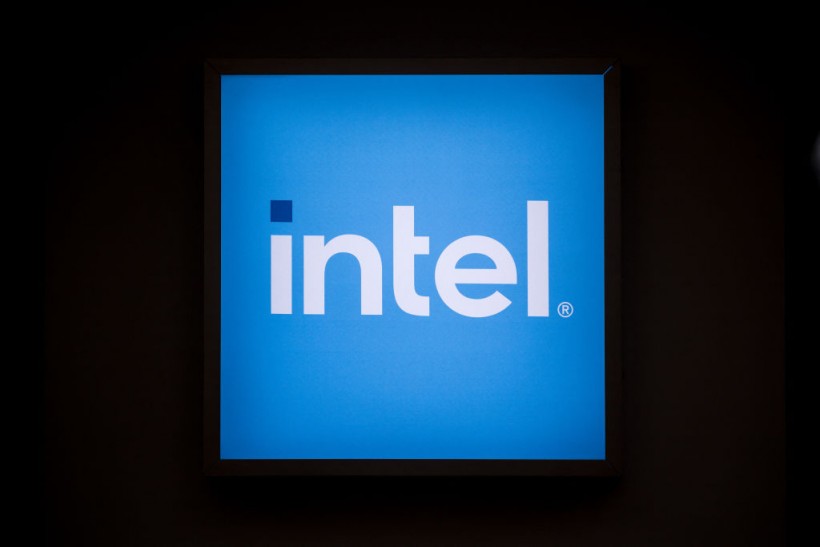Intel has secured a monumental boost from the U.S. government, receiving a staggering $19.5 billion under the CHIPS Act. This move marks the largest grant in the program's history and aims to accelerate the American tech giant's semiconductor production.
Under this groundbreaking agreement, Intel will receive up to $8.5 billion in grants and $11 billion in loans, reflecting the government's commitment to bolstering domestic semiconductor manufacturing.
President Joe Biden will make the official announcement in Chandler, Arizona, underlining the significance of this investment in revitalizing America's technological infrastructure.

(Photo : FABRICE COFFRINI/AFP via Getty Images)
A photograph taken during the World Economic Forum (WEF) annual meeting, in Davos on January 18, 2024, shows the logo of Intel, the US semiconductor company.
CHIPS and Science Act
Commerce Secretary Gina Raimondo emphasized the importance of this grant, stating that it would enable Intel to produce cutting-edge chips essential for artificial intelligence and military systems.
This aligns with the broader goal of the CHIPS program to ensure that the U.S. produces approximately 20% of the world's leading-edge chips by the end of the decade.
The CHIPS and Science Act, passed in 2022, allocated nearly $53 billion to strengthen the domestic chip supply chain and support research and development initiatives. From this fund, $39 billion is dedicated to enhancing semiconductor manufacturing, with Intel's grant accounting for approximately 22% of the total subsidy.
The funding is also intended to help Intel stay up with the recent AI boom. "AI is supercharging the digital revolution and everything digital needs semiconductors. CHIPS Act support will help to ensure that Intel and the U.S. stay at the forefront of the AI era..," said Intel CEO Pat Gelsinger.
Read Also: Microsoft Bets Big on Inflection's "More Personal AI" After Raising $1.3 Billion
Intel to Expand Chipmaking Plants Across the U.S.
Intel's ambitious plans extend beyond receiving government funding. The company is set to invest over $100 billion in chipmaking and packaging plants across four states: Arizona, Ohio, New Mexico, and Oregon. This substantial investment underscores Intel's commitment to reclaiming its leadership position in semiconductor manufacturing.
Furthermore, Intel is racing to deploy its latest chip production technologies, known as 18A, by 2025. This initiative aims to position Intel as a formidable competitor against industry giants like Taiwan Semiconductor Manufacturing Co. (TSMC) and Samsung. Both companies are also investing heavily in the U.S. and are expected to receive funding under the CHIPS Act.
While the government's support for Intel is significant, it reflects broader efforts to strengthen the domestic semiconductor industry. Major economies, including Japan, are racing to build robust chip supply chains, recognizing the strategic importance of semiconductor technology.
However, challenges persist, with rising costs affecting construction plans for chip-related facilities in the U.S. and abroad. Despite these obstacles, the government remains optimistic about the future of semiconductor manufacturing in America.
The impact of this investment extends beyond Intel, with significant job creation and economic growth anticipated. Intel's investments are expected to create over 10,000 company jobs, and nearly 20,000 construction jobs, and support more than 50,000 indirect jobs with suppliers and supporting industries.
Stay posted here at Tech Times.
Related Article: Intel Unveils 1.4nm Chip Production Plan, Aims to Rival TSMC Dominance






